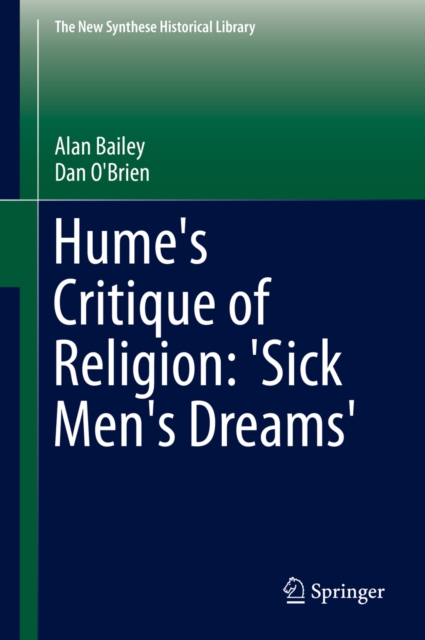
Hume's Critique of Religion: 'Sick Men's Dreams' PDF
by Alan Bailey, Dan O'Brien
Part of the The New Synthese Historical Library series
Description
In this volume, authors Alan Bailey and Dan O'Brien examine the full import of David Hume's arguments and the context of the society in which his work came to fruition. They analyze the nuanced natured of Hume's philosophical discourse and provide an informed look into his position on the possible content and rational justification of religious belief.
The authors first detail the pressures and forms of repression that confronted any 18th century thinker wishing to challenge publicly the truth of Christian theism. From there, they offer an overview of Hume's writings on religion, paying particular attention to the inter-relationships between the various works. They show that Hume's writings on religion are best seen as an artfully constructed web of irreligious argument that seeks to push forward a radical outlook, one that only emerges when the attention shifts from the individual sections of the web to its overall structure and context. Even though there isno explicit denial in any of Hume's published writings or private correspondence of the existence of God, the implications of his arguments often seem to point strongly towards atheism.
David Hume was one of the leading British critics of Christianity and all forms of religion at a time when public utterances or published writings denying the truth of Christianity were liable to legal prosecution. His philosophical and historical writings offer a sustained and remarkably open critique of religion that is unmatched by any previous author writing in English. Yet, despite Hume's widespread reputation amongst his contemporaries for extreme irreligion, the subtle and measured manner in which he presents his position means that it remains far from clear how radical his views actually were.
Information
-
Download - Immediately Available
- Format:PDF
- Publisher:Springer Netherlands
- Publication Date:10/10/2013
- Category:
- ISBN:9789400766150
Other Formats
- Hardback from £87.45
Information
-
Download - Immediately Available
- Format:PDF
- Publisher:Springer Netherlands
- Publication Date:10/10/2013
- Category:
- ISBN:9789400766150










